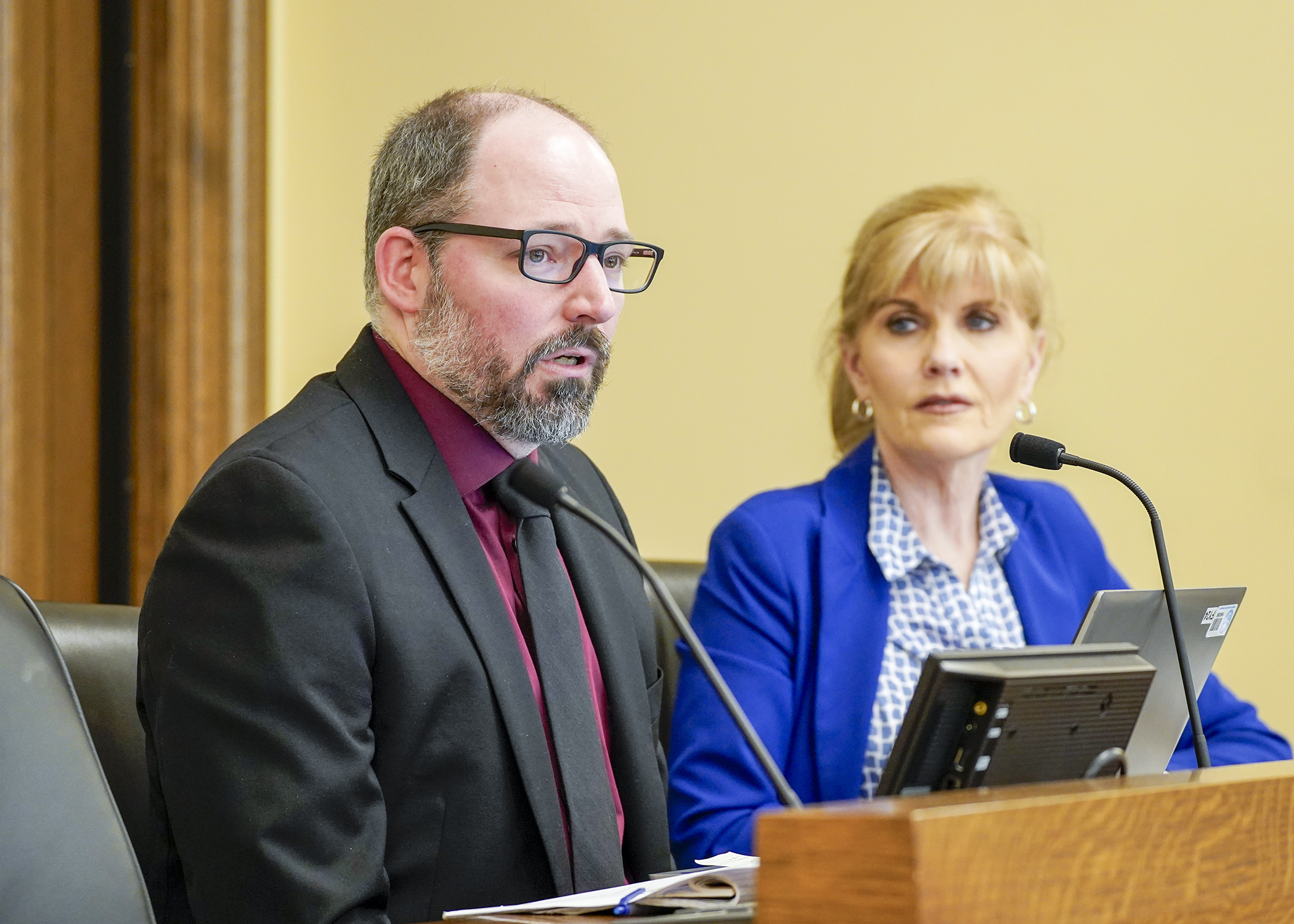Energy panel advances bill to recycle wind, solar waste

You might expect discussions of “end-of-life issues” to be the province of the committees overseeing health or human services. But the topic was top of mind in the House Energy Finance and Policy Committee on Thursday.
That’s because the committee was discussing HF1040, a bill sponsored by Rep. Peggy Scott (R-Andover). It’s designed to address an issue that’s come up frequently during recent legislative sessions when discussing the increased use of renewable energy sources in the state: What do you do with wind blades, turbines and solar panels after their days of energy production are over?
It would require producers of solar panels and wind energy conversion systems to implement a product stewardship program to collect and recycle discarded solar and wind materials. It would prohibit the retail sale of such infrastructure in Minnesota unless the producer is participating in a stewardship plan approved by the Minnesota Pollution Control Agency.
After an amendment to correct a number, the committee approved the bill without dissent and referred it to the House Environment and Natural Resources Finance and Policy Committee.
“I first introduced this bill 11 years ago because I saw that our state, and the whole country, was moving toward green energy infrastructure,” Scott said. “I’m from Iowa originally, and when I drive down I-35 to visit friends and family, somewhere after Clear Lake, there’s a big old pile of wind blades. And it’s been there for a long, long time. Now I recently read that the state of Iowa is suing to have those wind blades removed, and it’s become quite an ordeal. I don’t want that happening in our state.”
Scott said that she modeled the legislation after the state’s paint stewardship program, which allows the public to drop off unwanted paint for recycling, and its program for electronics collection and recycling.
The bill specifies the elements that must be present in a stewardship plan, which can be submitted to the Pollution Control Agency by an individual producer or a stewardship organization composed of several producers. Producers must pay an annual fee to the agency to reimburse the agency’s costs to administer the program. A person would be prohibited from placing wind and solar infrastructure in mixed municipal solid waste or in a landfill.
In 2023, the Legislature mandated a study from the Pollution Control Agency on how to deal with the issue, and the report was released this week. Kirk Koudelka, assistant commissioner of land policy for the Pollution Control Agency, said that many of its recommendations dovetail with what’s in the bill, particularly the need for a solar waste recycling program.
Committee members from both sides of the aisle praised the bill, with Rep. Spencer Igo (R-Wabana Township) particularly liking the ban on placing used infrastructure in landfills, and Rep. Larry Kraft (DFL-St. Louis Park) offering to take an active role in incorporating more of the PCA report’s recommendations into the bill as it evolves, something Scott said she’d welcome.
Rep. Athena Hollins (DFL-St. Paul) said, while she supports the bill, she’s observed the process of recycling solar panels.
“It’s really, really difficult,” Hollins said. “It’s one of the hardest things to take apart, break into pieces and get that copper and minerals out. But that doesn’t mean that we shouldn’t be doing it.”
Related Articles
Search Session Daily
Advanced Search OptionsPriority Dailies
Speaker Emerita Melissa Hortman, husband killed in attack
By HPIS Staff House Speaker Emerita Melissa Hortman (DFL-Brooklyn Park) and her husband, Mark, were fatally shot in their home early Saturday morning.
Gov. Tim Walz announced the news dur...
House Speaker Emerita Melissa Hortman (DFL-Brooklyn Park) and her husband, Mark, were fatally shot in their home early Saturday morning.
Gov. Tim Walz announced the news dur...
Lawmakers deliver budget bills to governor's desk in one-day special session
By Mike Cook About that talk of needing all 21 hours left in a legislative day to complete a special session?
House members were more than up to the challenge Monday. Beginning at 10 a.m...
About that talk of needing all 21 hours left in a legislative day to complete a special session?
House members were more than up to the challenge Monday. Beginning at 10 a.m...